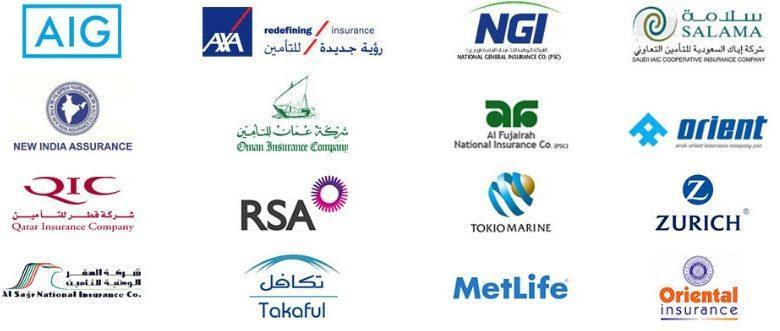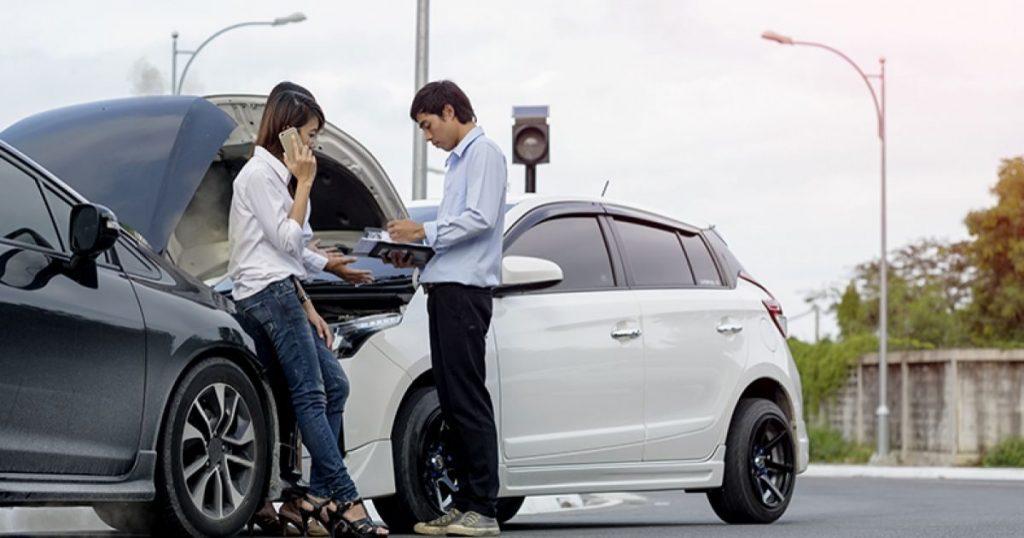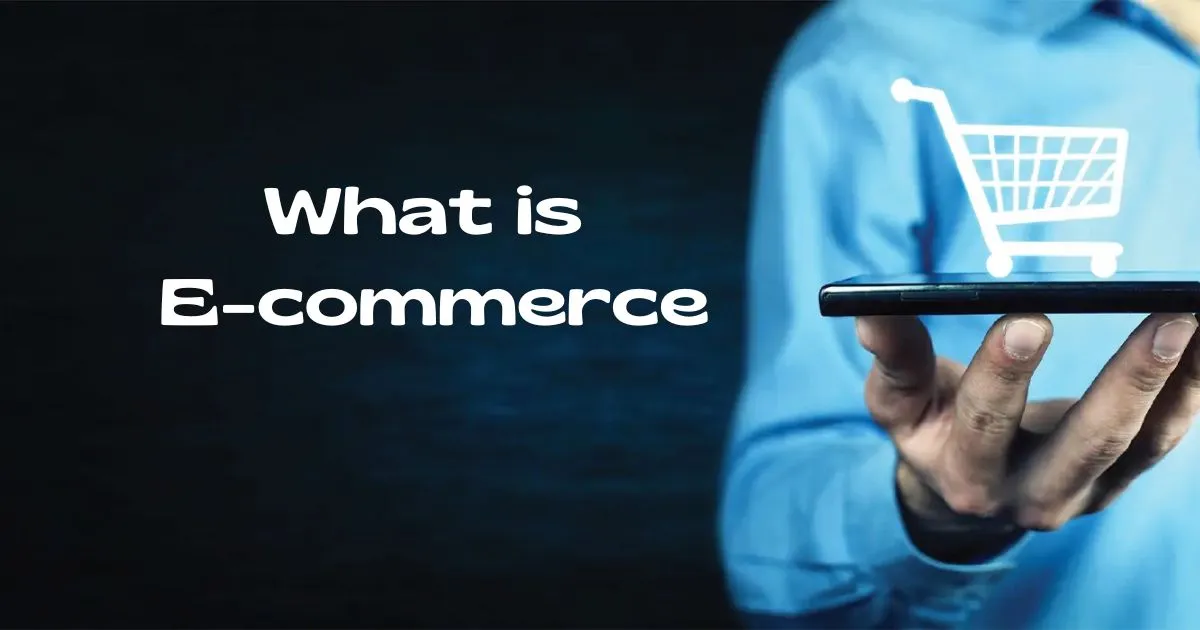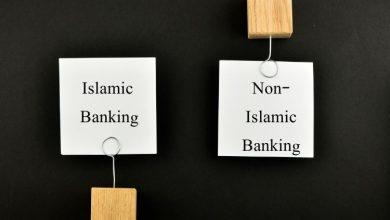Top 10 Car Insurance companies in UAE
Insurance, type of insurance, size of the insurance market.

Introduction to Car Insurance
Car Insurance serves as a risk management tool that offer financial security against unexpected damages, loss or personal injury brought on by auto accidents, as well as against liability that can emerge from related events. It is often referred to as auto insurance, vehicle insurance, motor insurance, or car insurance. Motor insurance covers cars, trucks, motorbikes, and other types of road vehicles. Top 10 car insurance companies are listed in this article

Types of Car Insurance
Comprehensive Insurance
Comprehensive insurance is a type of insurance coverage that provides financial protection for a wide range of risks and incidents. It typically covers damages to your own vehicle as well as liability for damages to other parties involved in an accident. Here are some key features of comprehensive insurance:
- Own Vehicle Coverage: Protect your vehicle against damages caused by accidents, theft, vandalism, fire, natural disasters, and other non-collision incidents.
- Third-Party Liability: Coverage for liability towards third parties, such as damage to another person’s vehicle or property.
- Additional Coverages: Additional coverages include features like personal injury protection, roadside assistance, rental car reimbursement, and more.
- Other Calamities Included: Calamities both natural and man-made like theft, fire, road accidents and natural disasters too are covered
Comprehensive insurance have higher premiums. While it is not legally required, it is often recommended for newer or more valuable vehicles because it provides complete peace of mind knowing that you have protection against a wider range of risks.
Third-Party Insurance
Third-party insurance is a type of insurance coverage that protects you against liability for damages caused to third parties. It is typically mandatory in many countries to ensure that individuals have financial coverage for damages they may cause to others. Here are some key features of third-party insurance:
- Liability Coverage: Third-party insurance primarily covers your liability for damages caused to another person’s vehicle or property in an accident where you are at fault.
- Legal Requirement: Third-party insurance is often a legal requirement for vehicle owners to ensure that they can financially compensate others for any damages they cause.
- Limited Coverage: Third-party insurance usually does not cover damages to your own vehicle or personal injuries. It focuses solely on providing coverage for damages you may cause to others.
- Lower Premiums: Compared to comprehensive insurance, third-party insurance generally has lower premiums since it offers limited coverage.
- Supplemental Coverage: Some insurance policies may offer optional add-ons to third-party insurance, such as personal accident coverage or additional protection against theft or fire.
Key Features and Benefits of Comprehensive Insurance:
- Full Coverage: Comprehensive insurance provides extensive coverage for a wide range of risks and incidents, including damages to your own vehicle, theft, vandalism, natural disasters, and more.
- Peace of Mind: With comprehensive insurance, you can have peace of mind knowing that you are financially protected against various unforeseen events that can result in costly damages to your vehicle.
- Protection against Non-Collision Incidents: Comprehensive insurance covers damages caused by factors other than collisions, such as fire, floods, hailstorms, falling objects, and acts of vandalism.
- Liability Coverage: In addition to protecting your own vehicle, comprehensive insurance also includes liability coverage, ensuring that you are financially protected if you cause damage to another person’s vehicle or property.
- Flexible Add-Ons: Many comprehensive insurance policies offer optional add-ons and additional coverage options such as roadside assistance, rental car reimbursement, personal injury protection, and coverage for custom accessories.
Key Features and Benefits of Third-Party Insurance:
- Legal Requirement: Third-party insurance is often a legal requirement in many jurisdictions to ensure that individuals have the necessary coverage to compensate others for damages they may cause in an accident.
- Liability Coverage: Third-party insurance primarily provides coverage for liability towards third parties, protecting you financially if you cause damage to another person’s vehicle or property.
- Affordability: Compared to comprehensive insurance, third-party insurance generally has lower premiums, making it a more affordable option for individuals who want to meet the legal requirements without the additional coverage for their own vehicle.
- Simplicity: Third-party insurance policies tend to have straightforward coverage options, focusing solely on liability protection for damages caused to others, without the complexities of covering one’s own vehicle.
- Supplemental Coverage Options: Some insurance providers offer optional add-ons to third-party insurance, such as personal accident coverage or protection against theft or fire, allowing you to enhance your coverage based on your needs.
Top 10 Car/Motor Insurance Companies in UAE
The UAE has several reputable insurance companies offering car/motor insurance. Here are some of the well-known companies:
- Oman Insurance Company
- AXA Insurance
- RSA Insurance
- Dubai Insurance Company
- Union Insurance
- Noor Takaful
- Abu Dhabi National Insurance Company (ADNIC)
- Takaful Emarat Insurance
- National General Insurance (NGI)
- Salama Islamic Arab Insurance Company
Comparison and Pros and Cons
Each insurance company varies in their services and may have advantages and disadvantages, depending on individual needs and preferences. Therefore it’s essential to compare insurance companies based on coverage, premium rates, customer service, claim settlement process, and reputation. Here are some general pros and cons to consider:
- Oman Insurance Company
- Pros: Wide range of coverage options, strong financial stability.
- Cons: Higher premiums compared to some competitors.
- AXA Insurance
- Pros: Comprehensive coverage and efficient claims processing.
- Cons: Premiums may be higher for certain coverage options.
- RSA Insurance
- Pros: Competitive pricing and customizable coverage.
- Cons: Limited network of service centers.
- Dubai Insurance Company
- Pros: Diverse coverage options, prompt customer service.
- Cons: Some customers have reported delays in claims processing.
- Union Insurance
- Pros: Flexible coverage plans and good customer support.
- Cons: Premiums can be higher compared to some competitors.
- Noor Takaful
- Pros: Sharia-compliant insurance, personalized service.
- Cons: Limited coverage options for non-Muslim customers.
- Abu Dhabi National Insurance Company (ADNIC)
- Pros: Strong financial stability and an extensive network of service centers.
- Cons: Some customers have reported delays in claim settlements.
- Takaful Emarat Insurance
- Pros: Competitive pricing and transparent processes.
- Cons: Limited coverage options compared to some competitors.
- National General Insurance (NGI)
- Pros: Competitive premiums and efficient claims handling.
- Cons: Some customers have reported delays in customer service response.
- Salama Islamic Arab Insurance Company
- Pros: Sharia-compliant insurance, strong market presence.
- Cons: Limited coverage options for non-Muslim customers.
Please note that this is just a general overview, and it’s advisable to conduct additional research and speak with insurance experts to make a selection based on your specific needs.
Size of Vehicle Insurance market in UAE
The vehicle insurance market in the United Arab Emirates (UAE) has shown growth and significant potential over past many years. According to press release from BlueWeave Consulting which is a top strategic consulting and market research firm, the UAE vehicle insurance market is projected to develop at a CAGR of 1.93% between 2023 and 2029, reaching a value of USD 1707.65 million by that year. This expected boost is because of the increase in collisions, traffic mishaps, and wrecks in UAE. The weight given to each of these factors influences how much a policy will cost.
Conclusion
Insurance provides financial protection and peace of mind against unexpected events or losses. Car insurance is particularly important for car owners in the UAE, where road accidents and vehicle-related risks are prevalent. By comparing different insurance companies based on coverage, premiums, customer service, and reputation, you can find the best fit for your motor/vehicle insurance needs. Remember to carefully evaluate the pros and cons of each company to make an informed decision that aligns with your preferences and priorities.




